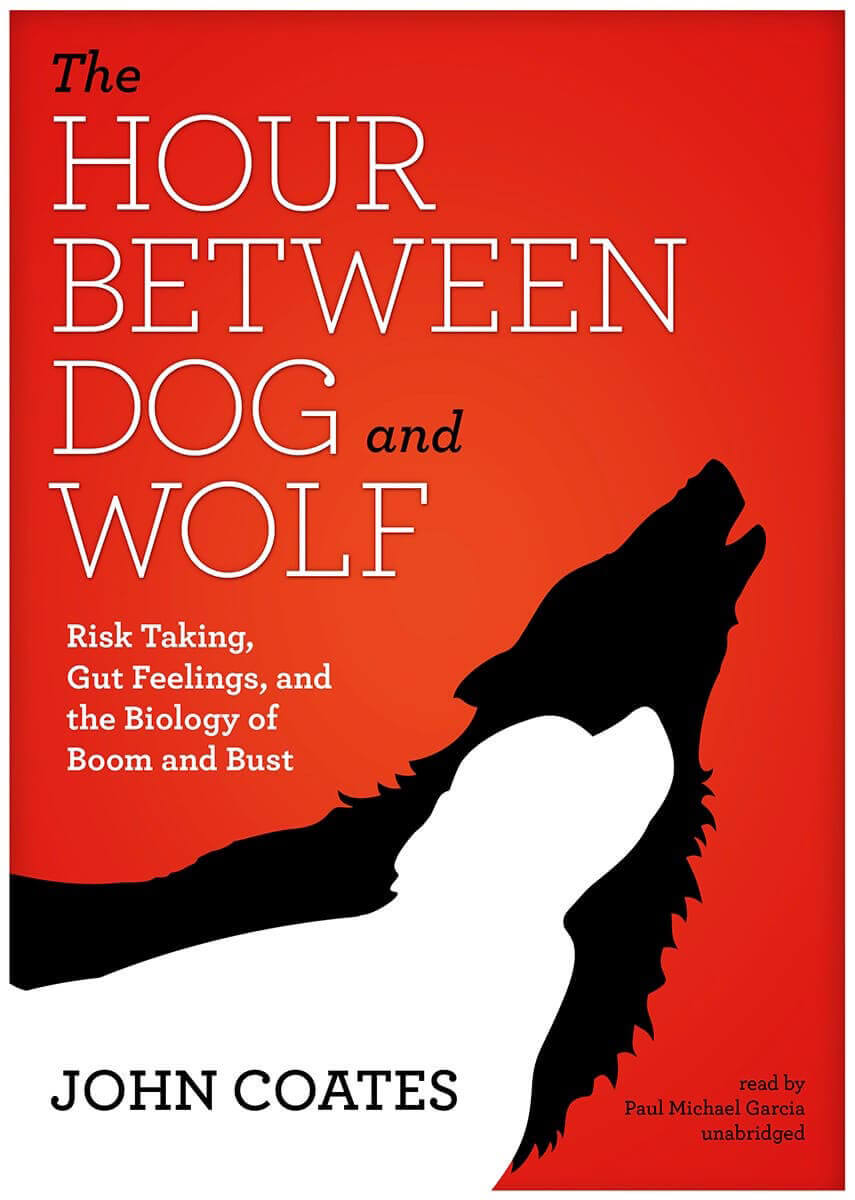If you’re interested in learning how Embroker can help you mitigate risk and intelligently insure your business, you can reach out to our team of expert brokers. Or, if you prefer to get started on intelligent quotes, create your Embroker account today.
The Biology of Risk: How Risk-Taking Affects Our Bodies
Embroker talked to the author, Dr. John Coates how risk taking affects our bodies. Find out more in this article.
Table of Contents
Protect your business today!
Get a Quote

Anyone who has taken a risk understands its visceral feeling. Dr. John Coates puts it beautifully, “Risk engages our entire being,” and his book The Hour Between Dog and Wolf: Risk Taking, Gut Feelings, and the Biology of Boom and Bust explores how risky wins and losses can change us “Jekyll-and-Hyde-like beyond all recognition.”
Running the derivatives trading desk for Goldman Sachs and later Deutsche Bank in New York, Dr. Coates witnessed first-hand this biology of risk-taking and its effects in the financial markets. During the dot-com bubble and bust, he observed cocky and unreasonable behavior when traders were on a winning streak, and the extreme opposite after huge losses.
Looking to bring biology to the story of overconfidence and irrationality in our financial market instability, he retired from Wall Street and returned to the University of Cambridge in 2004 to study neuroscience and endocrinology, in order to understand how risk-taking affects our bodies.
Learn more about managing your business risks and streamlining your insurance with Embroker. Read our newest guide now: Embroker 101.
Dr. Coates’ research found that hormones are at work during risk-taking: testosterone is likely to rise in a bull market, while cortisol is likely to rise in a bear market. Moreover, these hormones and signals from the body not only influence risk-taking among financial traders, but they also have wider implications beyond the markets.

That winning feeling
The ancient Greeks believed that we were visited by gods during defining moments in our lives, such as winning battles, love, and childbearing. Those instants felt extra vivid and powerful, but Dr. Coates discovered that these feelings are really induced by our hormones, not Olympian gods.
Testosterone fuels the “winner effect.” It affects the brain, increasing confidence and appetite for risk, but after an extended winning streak, testosterone also causes overconfidence, unreasonable exuberance, and obliviousness to danger.
We can see this when medical patients are given steroids to help them put on weight. Andrew Sullivan recounts injecting testosterone to increase his appetite in the New York Times Magazine:
“Within hours, and at most a day, I feel a deep surge of energy. It is less edgy than a double espresso, but just as powerful. My attention span shortens. In the two or three days after my shot, I find it harder to concentrate on writing and feel the need to exercise more. My wit is quicker, my mind faster, but my judgment is more impulsive. It is not unlike the kind of rush I get before talking in front of a large audience, or going on a first date, or getting on an airplane, but it suffuses me in a less abrupt and more consistent way. In a word, I feel braced. For what? It scarcely seems to matter.”

Glass half-empty
On the other side of the spectrum, cortisol is the main hormone that makes us feel irrational pessimism, and it works together with adrenaline. A good example is if you are hiking in the woods and hear a crackling of branches. You may suspect there’s a bear nearby, and adrenaline kicks in to make you feel a clear sense of danger. But it soon dissipates if nothing happens.
We are designed for moving
One of Dr. Coates’ most exciting finds is that conscious, rational thought is just a smaller player in our lives, and that the brain’s basic function is the organization of movement, not higher thought processes.
“When I left Wall Street and retrained in neuroscience and physiology, I first encountered the work on brain anatomy, which shows that the brain is designed primarily for planning and executing movement. I found that such an odd idea, because I had done so much philosophy and economics at university, both of which emphasize that the brain is for pure thought, along lines laid down by Plato. But if you accept that our platonic notions are just that – untested philosophical speculation – and instead put movement at the core of your research, well, then the data just starts to work. And at the end of the day, that’s all that counts…”
This is perhaps why we have gut feelings, we react faster than our conscious thoughts, and why powerful moments in your life can be a haze of exhilaration and clarity, where your mind and body seem to merge as one. Considering the biology of risk, we realize that there is no separation of mind and body, that we can truly be resilient no matter what life hands us.
Cortisol takes over if there is in fact a predator chasing you. It is a long-term and metabolically expensive function. Initially, cortisol sharpens your attention and increases your arousal, but over time, it makes you feel anxious, forces you to recall disturbing memories, and gives you a tendency to find danger where there is none. This chronic stress fosters irrational risk-aversion.

And how is this relevant for businesses today?
“Business really just cares about what works, not what is the latest theory, and that means they, like scientists, care about what is supported by the data. So, I have seen far more interest out of the private sector, sports teams, healthcare, and the military than out of academia. In my research, I have found that the largest determinant of your performance at work, even doing tasks considered largely cognitive, is the state of your body.
That’s novel. Trouble is, most of the physiological systems driving your performance operate below the level of consciousness. So, we are often, maybe even usually, unaware of what is driving our performance.”
How then can we gain self-knowledge, and in turn improve ourselves?
“A scientifically literate manager observing from the outside can see a lot that you cannot see; but probably the best tool for accessing our own data is the use of wearables in the workplace, monitoring heart rates and such. Most of what I do now is apply my research within companies that want to take this approach.”
From Dr. Coates’ research and work with the private sector, he’s found that taking some risks is good for your body and business. The question becomes how does someone distinguish between the kind of risk or acute stressors, which strengthen you, from chronic stressors, which can kill?
Once we are able to understand these bodily signals, including stress and fatigue, and place more emphasis on overall wellness, we can toughen ourselves against bad stress and even find more stability in financial markets, work, and beyond.
